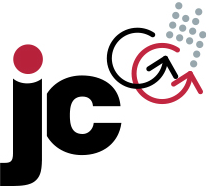Bürgergeld
With the introduction of Bürgergeld, the basic income support for jobseekers has been extensively reformed and fundamentally developed.
People who receive Bürgergeld should be able to concentrate better on finding a job.
The law places greater emphasis on qualification, vocational training and targeted support. The aim is to improve labour market opportunities and long-term integration into work.
The tax-free allowance for earned income between €520 and €1,000 per month has been increased to 30% of income.
For earned income of School pupils, students, trainees and Federal Volunteers and Voluntary Service Volunteers, the allowance has been increased up to the mini-job limit (€520 per month). This also applies during a three-month transition period between leaving school and starting training.
School pupils can earn unlimited additional income during the holidays.
In the case of voluntary work, expense allowances of up to 3,000 euros per calendar year are not counted as income.
There is a one-off so-called waiting period for taking existing assets into account when determining needs. This is 12 months. During this period, assets of up to €40,000 for the first person in the community of need and assets of up to €15,000 for each additional person in the community of need are not taken into account.
In addition, owner-occupied residential property, regardless of size and value, is not included in the benefit calculation during this period.
At the end of the waiting period, a standardised, age-independent asset allowance of €15,000 applies for each person in the benefit community.
An owner-occupied property with a living space of up to 140 square metres (4 persons, plus an additional 20 square metres for each additional person) or an owner-occupied condominium of up to 130 square metres (4 persons, plus an additional 20 square metres for each additional person) will continue to be disregarded.
Among other things, reserves for the retirement provision of self-employed persons, irrespective of the form of investment, are further protected to a legally defined amount.
With regard to housing benefits, Bürgergeld has a one-off waiting period. This is 12 months. During this period, the actual costs of the home are covered, regardless of their appropriateness, and there are no requests to reduce inappropriate costs.
This does not apply to heating costs! These are only covered to a reasonable extent during the waiting period, i.e. from the beginning.
Even if you move house during the waiting period, unreasonable costs for the new home can only be recognised after the job centre has given prior assurance that it will cover the costs.
Once the waiting period has expired, the appropriateness of the housing costs will be reviewed and a cost reduction procedure may be necessary.
Accommodation costs that have already been reduced will remain reduced.
Reductions in benefits are possible in the event of breaches of duty and failure to register from the start of benefit receipt.
In the event of failure to register, the standard requirement is reduced by 10 per cent for one month.
In the event of the first breach of duty, the standard requirement is reduced by 10 per cent for one month.
In the event of a second breach of duty, the standard requirement is reduced by 20 per cent for two months.
In the final stage, the standard requirement is reduced by 30 per cent for three months.
In total, benefit reductions in one month may not exceed 30 per cent of the relevant standard requirement.
The proportion of benefits paid for accommodation costs may not be reduced.
There are no stricter special rules for young people up to the age of 25.
In the event of a reduction in benefits, they receive advice and support from the job centre.
The Bürgergeld Act aims to improve the chances of permanent integration into work. This means that immediate placement in work is not always the first goal.
Qualification and further training are to be focussed even more strongly in order to increase the chances of finding a long-term and secure job.
The previous integration agreement has been replaced by the so-called co-operation plan. This is drawn up jointly by the beneficiaries and the integration specialists on a basis of trust. It serves as a "common thread" for the jointly developed integration strategy and no longer contains instructions on the legal consequences.
If there are differences of opinion regarding the cooperation plan, an impartial arbitration procedure can be used to find a good solution.
The new services include individualised coaching, which can provide support during training or employment or include holistic support.
Anyone who completes a qualification-related training or further education programme receives a monthly training allowance of 150.00 euros.
There is a further training bonus for successful intermediate and final examinations.
In future, it will also be possible to receive funding for three years (previously only two years) to catch up on a vocational qualification.
For measures that are particularly important for sustainable integration, there is a monthly Bürgergeld bonus of 75.00 euros.
The so-called social labour market (participation in the labour market, Section 16i SGB II) will be continued.
This means that the job centre can continue to promote employment relationships subject to social insurance contributions if people have been unemployed for six years or longer ("participation in the labour market" according to Section 16i SGB II).
Further information on Bürgergeld
- You can find a detailed guide to Bürgergeld under this link.
- Flyer "Bürgergeld at a glance"
Both publications are published by the Federal Ministry of Labour and Social Affairs.
